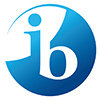Dr. Brent Davis, Dr. Caroll Ryan, Dr. Marilyn Uvero
Education is a transformative journey, and high school students often find themselves at the crossroads of choosing the right academic path. In the ever-evolving landscape of high school education, the choice between academic programs becomes a pivotal decision for students aspiring to thrive in a globally interconnected world. Among the myriad options, the International Baccalaureate (IB) program emerges as a beacon of academic excellence, offering a holistic and comprehensive approach that goes beyond the confines of traditional subject boundaries. Education is expected to address societal needs. In comparing the IB with the Advanced Placement (AP) Examinations, one needs to keep in mind that within the overall purpose of improving education, the specific goals and outcomes are different. The AP program was a response to the perceived advantage of the Soviet education system in science compared to the United States while the IB program was a response to the needs of diplomatic corps children for a curriculum that prepared international students for a broad range of education with a desire for strong intercultural communication (A Complete History of AP Classes and Controversies (prepscholar.com)).
The IB program stands out for its commitment to a holistic curriculum, encompassing six subject groups including languages, social studies, experimental sciences, and mathematics along with the Theory of Knowledge (TOK), Extended Essay (EE), and Creativity, Activity, Service (CAS) components. This comprehensive approach encourages students to explore the interconnectedness of knowledge across various disciplines. Where the AP program focuses on specialized subjects, the IB curriculum fosters a well-rounded education that prepares students for the complexities of a diverse and interconnected world.
IB places a strong emphasis on the development of critical thinking skills and international-mindedness. Beyond academic achievement, the IB program places a significant focus on personal development through the Extended Essay and Creativity, Activity, Service components.
An International Baccalaureate (IB) learner is a dynamic and intellectually curious individual who embodies the core values and principles of the IB program. These learners are characterized by a unique set of qualities that go beyond academic excellence, reflecting a commitment to holistic education and the development of a global perspective. The IB Learner has an inquisitive mindset, is open-minded, is a critical thinker, has a balanced approach to nurturing both academic and personal growth, and is reflective of their own strength in the face of challenges. The IB learner is a global citizen who recognizes their interconnectedness with the world. They appreciate diverse cultures, understand global issues, and are committed to making a positive impact (Learner profile for IB students - International Baccalaureate® (ibo.org).
IB programs emphasize collaboration; AP courses are good for self-study. Both require considerable effort. According to Kristen Mariotti, an expert on college preparation, colleges seem to have a slight preference for IB graduates as their courses are more like university ones. IB courses develop academic skills on a variety of content (often highly individualized) while AP courses all have exactly the same content.
In the landscape of high school education, both the International Baccalaureate and Advanced Placement programs stand as beacons of academic excellence. The IB program, with its holistic approach and international perspective, appeals to students seeking a comprehensive educational experience. On the other hand, the AP program offers a specialized, subject-focused path.
Ultimately, the choice between IB and AP depends on individual preferences, learning styles, and future aspirations.
In considering how best to prepare your student for college, do not neglect to consider the values of the school. American University Research Academy (AURA) is an IB Accredited school in Signal Hill, California that emphasizes Judeo-Christian values and beliefs. According to Jennifer Herrity, a career coach, employers are looking for good work ethics skills such as the core values of AURA and the IB program.















